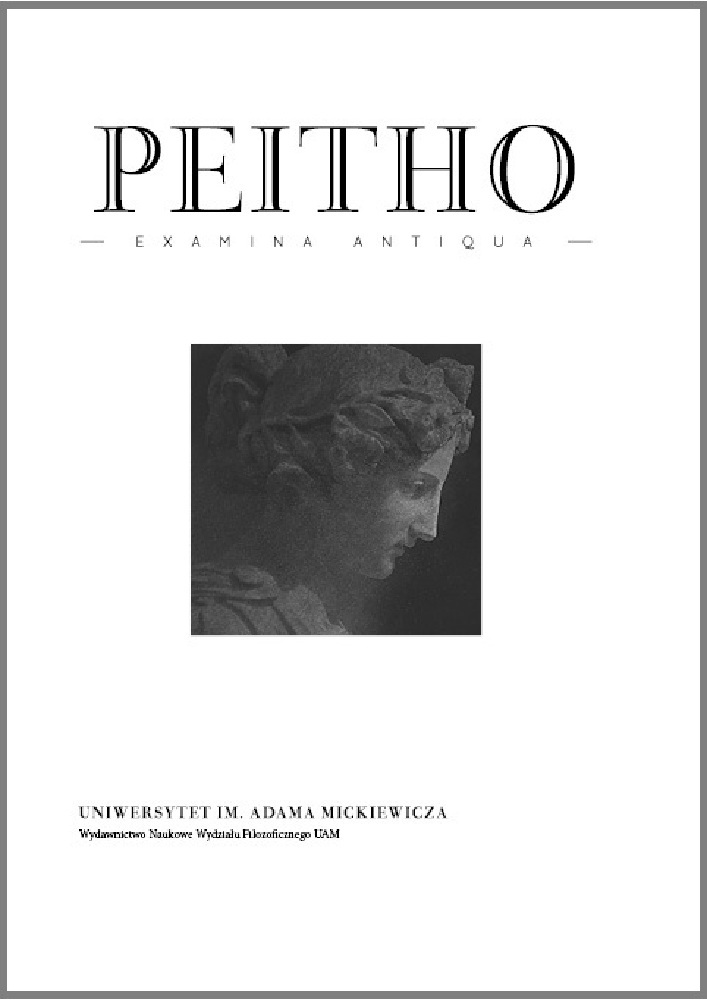Abstract
The most famous medieval controversy over the power and the temporal dominion took place between the papacy and the empire. One of the greatest advocates of the imperial domination was Marsilius of Padua, the author of an original work that demonstrated the advantage of acknowledging the emperor’s superiority over the Pope’s. The Defensor pacis, written between 1319 and 1324, was devoted to the dispute on such sovereignty issues as proving that the Pope should be subordinate to the Emperor, and not vice versa. The Defensor pacis takes issue with numerous arguments and views uttered by the papal camp and uses the appropriate quotations from the Bible and Aristotle to show their weakness and inconsistency. The work comprises three parts. The first part is a description of the ideal system, i.e., an elective monarchy, with the specified role of a ruler and a clear indication of the sovereignty of the people. The second and third parts present a challenge to the arguments of the papal camp (including the famous argument of the “power keys”) and analyze the general situation of the Church, suggesting the necessary reforms. Thus, the whole work becomes a compendium of knowledge on appropriate governance.
References
Barani, F., 1979, „Il concetto di laicita come chiave interpretativa del pensiero politico: Marsilio da Padova”, Medioevo. Rivista di storia della filosofia medievale 5, s. 259—278.
Baszkiewicz, J., 1970, Myśl polityczna wieków średnich, Warszawa.
Battaglia, F., 1928, Marsilio da Padova e la filosofia politica del medioevo, Firenze.
Battocchio, R., 2005, Ecclesiologia e politica in Marsilio da Padova, Prefazione di G. Piaia, Padova.
Beonio‑Brocchieri Fumagalli, M.T., 1996, Storia della filosofia medievale: da Boezio a Wyclif, Bari.
Berti, E., 1979, „Il ‘regnum’ di Marsilio tra la ‘polis’ aristotelica e lo ‘stato’ moderno”, Medioevo. Rivista di storia della filosofia medievale 5, s. 165—182.
Capitani, O., 1983, Medioevo ereticale, Bologna.
Carr, D.R., 1979, „The Prince and the City: Ideology and Reality in the Thought of Marsilius of Padua”, Medioevo. Rivista di storia della filosofia medieval 5, pp. 279—292.
Cavallara, C., 1973, La pace nella filosofia politica di Marsilio da Padova, Ferrara.
Checcini, A., 1942, Interpretazione storica di Marsilio da Padova, Padova.
Dante Alighieri, 2002, Monarchia, przeł. W. Seńko, Kęty.
Dolcini, C., 1995, Introduzione a Marsilio da Padova, Bari.
Evans, G.R., 1996, Filozofia i teologia w Średniowieczu, przeł. J. Kiełbasa, Kraków.
Gentile, F., 1979, „Marsilio e l’origine dell’ideologia”, Medioevo. Rivista di storia della filosofia medievale 5 s. 293—302.
Gewitrh, A., 1949, Marsilius of Padua. Mediaeval Politcal Philosophy, New York.
Gilson, E., 1996, Historia filozofii chrześcijańskiej w wiekach średnich, przeł. S. Zalewski, Warszawa.
Gogacz, M., 1979, „L’homme et la communaute dans le ‘Defensor pacis’ de Marsile de Padoue. Le probleme de l’inconsequence de l’averroisme comme aristotelisme neoplatonisant”, Medioevo, Rivista di storia della filosofia medievale 5, s. 189—200.
Hardt, M., Negri, A., 2005, Imperium, przeł. S. Ślusarski, A. Kołbaniuk, Warszawa.
Jung‑Palczewska, E., 2000, Wszystko to ze zdziwienia. Antologia tekstów filozoficznych z XIV wieku, Warszawa.
Kuksewicz, Z., 1973, Zarys filozofii średniowiecznej, Warszawa.
Marsilio da Padova, 1975, Il difensore della pace, a cura di C. Vasoli, Torino.
Marsilio da Padova, 2001, Il difensore della pace (testo latino a fronte), introduzione di M.T. Fumagalli Beonio
Brocchieri, traduzione e note di M. Conetti, C. Fiocchi, S. Radice, S. Simonetta, Milano.
Marsilio da Padova, 2007, Il difensore della pace, a cura di E. Ancona, F. Todescan (con testo latino del Difensore della pace e traduzione di C. Vasoli), Padova.
Marsyliusz z Padwy, 2006, Obrońca pokoju, przeł. W. Seńko, Kęty.
Ockham, W., 2005, Dialog. Część pierwsza, przeł. J. Surzyn, Kęty.
Quillet, J., 1970, La Philosophie Politique de Marsile de Padoue, Paris.
Reese, T.J., 2008, „Reformowanie Watykanu”, Tygodnik Powszechny 38.
Seńko, W., 2002, „Wstęp”, w: Dante Alighieri, Monarchia, przeł. W. Seńko, Kęty.
Seńko, W., 2006, „Wstęp tłumacza”, w: Marsyliusz z Padwy, Obrońca pokoju, przeł. W. Seńko, Kęty.
Simonetta, S., 2000, Dal difensore della pace al Leviatano: Marsilio da Padova nel Seicento inglese, Milano.
Stępień, K., 2005, „Marsyliusz z Padwy” [hasło], w: Powszechna encyklopedia filozofii, t. VI, Lublin, s. 862—865.
Surzyn, J., 2005, „Wstęp”, w: W. Ockham, Dialog. Część pierwsza, przeł. J. Surzyn, Kęty.
Toscano, A., 1981, Marsilio da Padova e Niccolo Machiavelli, Ravenna.
Vasoli, C., 1979, „La ‘Politica’ di Aristotele e la sua utilizzazione da parte di Marsilio da Padova”, Medioevo. Rivista di storia della filosofia medievale 5, s. 237—259.
License
Peitho provides immediate open access to its content on the principle that making research freely available to the public supports a greater global exchange of knowledge.
